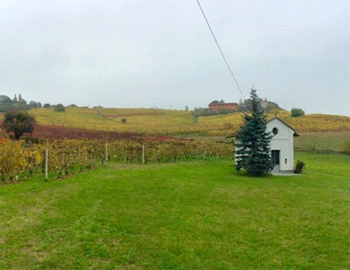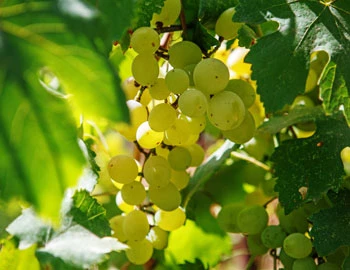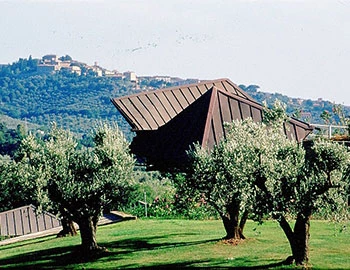Moscato Barisél (Ex-d'Asti) 2023
Canelli DOCG, Cascina Barisél/Franco Penna, 750 ml

| Grape variety: | Moscato bianco |
| Producer: | Cascina Barisél / Franco Penna |
| Origin: | Italy / Piemont / Moscato d'Asti |
Description
The scent of the muscatel grape is unmistakably recognizable: passion fruit, white peach, orange flower and lavender. The delicate sweetness and the gently tickling perlage balance each other perfectly in order to bring this grape’s charming aromatic potential out at its fullest. The low alcoholic level of only 5.5% vol. makes this Moscato a very light and pleasurable wine.
Attributes
| Origin: | Italy / Piemont / Moscato d'Asti |
| Grape variety: | Moscato bianco |
| Label: | Vegan |
| Ripening potential: | 1 to 2 years |
| Drinking temperature: | 8 to 10 °C |
| Food Pairing: | Panettone, Cakes, biscuits, pastries, Fruit tart |
| Vinification: | fully destemmed, fermentation in steel tank |
| Harvest: | hand-picking, strict selection |
| Maturation: | in steel tank |
| Bottling: | filtration |
| Volume: | 5.5 % |
| Note: | Contains sulphites |
Cascina Barisél / Franco Penna
With just 5 hectares, Franco Penna's winery is small but exquisite. The estate near Canelli, east of Alba, comprises only the very best south-facing sites with calcareous soils. Franco's father Enrico, who bought the estate in the 1960s, obviously knew what he was doing.
Practically half of the vineyard is planted with Moscato bianco. One hectare is dedicated to Barbera, from which La Cappelletta is made, and the remaining land planted with Dolcetto and Favorita. In recent years, Franco Penna, like so many other winemakers, has adapted his winegrowing and increasingly relies on organic methods. The vineyards around Canelli are among the most valuable in Piedmont, especially because of the fragrant, finely sparkling Moscato d'Asti. Franco Penna is committed to keeping these soils alive through the appropriate cultivation.

Moscato bianco
A sweet family
Over 200 varieties have “Muscat” in their names, and many are completely unrelated. What they share is a fragrance of fresh grapes. Muscat owes its name to the intense aroma. It derives from the word “musk”, and appears in documents dating from 1230. The most common representative of the Muscat line is the white Muscat blanc à petits grains. In Italy, it is known as Moscato Bianco, and in Germany and Styria as Gelber Muskateller. In Switzerland it is called Muscat du Valais. Researchers largely agree that it originated in Greece, and from there found its way via Italy to southern France. When crafted with expert hands, it turns out fresh, floral and spicy with a slightly tart note. Pressing it into high quality wines is not very easy. Sweet forms have greater renown, such as Muscat de Rivesaltes and Muscat de Beaumes-de-Venise from southern France or Muscat from the Greek island of Samos.

Italy
Italy – Where wine is a way of life
The Italian wine regions are extremely diverse, and this is made clear in their wines. Established varieties such as Merlot, Syrah, and Sauvignon can be found on just 15 percent of the total vine growing area. The remaining 85 percent is reserved for autochthonous, indigenous varieties. More than 2,000 different grape varieties are grown under diverse conditions and pressed with various techniques into wines that reach the top tier of the international wine market.



